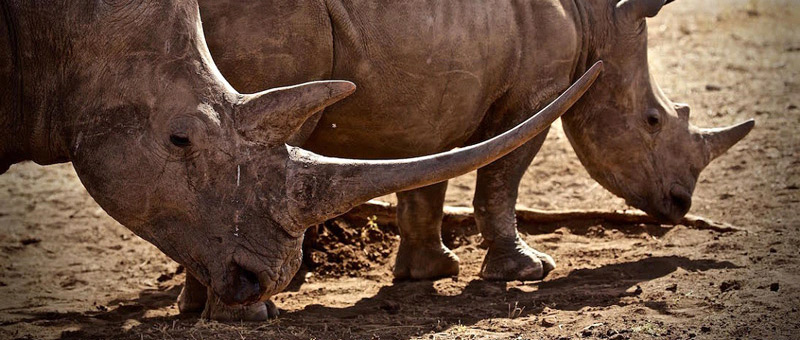Investigating the Criminal Drivers of Deforestation in the Colombian Amazon
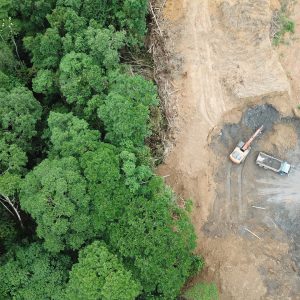 Since 2022, through Operation ENCANTO, Earth League International (ELI) has undertaken an extensive field investigation in the Colombian Amazon to gather intelligence on the criminal, financial, and logistical systems driving large-scale deforestation across the region. The operation aims to strengthen national and international’s capacity to understand, investigate, detect, and prevent environmental crime in the Amazon region, while also uncovering its links to transnational organized crime networks and exposing those responsible.
Since 2022, through Operation ENCANTO, Earth League International (ELI) has undertaken an extensive field investigation in the Colombian Amazon to gather intelligence on the criminal, financial, and logistical systems driving large-scale deforestation across the region. The operation aims to strengthen national and international’s capacity to understand, investigate, detect, and prevent environmental crime in the Amazon region, while also uncovering its links to transnational organized crime networks and exposing those responsible.
Through advanced field investigative operations and the collection of Human Intelligence (HUMINT), ELI’s undercover operatives and researchers gained access to some of the most remote and dangerous regions of Colombia, documenting how organized criminal networks exploit environmental resources for profit.
Our teams combined on-the-ground infiltration, undercover operations, and local engagement with advanced analytical research to expose how illicit economies—illegal cattle ranching, coca cultivation, and gold mining—are interconnected and expanding under the protection of criminal groups.
Criminal Economies Driving Deforestation
While illegally cleared land can be detected via satellite imagery and other tools, such as fire-spotting, national and local government responses to illegal clearing in protected areas have been largely ineffective, and deforestation continues at a rapid pace. However, satellites and aerial photographs do not reveal who is behind these illegal activities. Only field investigations and intelligence work can uncover this crucial information — identifying the key environmental criminal actors and understanding their modus operandi. In other words, they provide the answers to who and how.
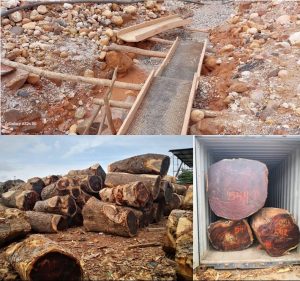
ELI’s field investigations documented illegal cattle ranching, coca plantations, and illegal mining across multiple departments, with Meta, Caquetá, and Guaviare emerging as the most heavily affected by illegal land grabbing and other organized criminal activities.
ELI’s teams met with local communities, traders, park rangers, political and military officials, and FARC dissidents, gathering first-hand intelligence that revealed how these criminal markets overlap and reinforce one another.
- Coca cultivation remains a major driver of deforestation and a pillar of the regional illicit economy. Profits from coca production fuel cattle ranching expansion, while ranching provides logistical cover and infrastructure for coca networks. In the tri-border region (Colombia–Peru–Brazil), criminal organizations collaborate to traffic cocaine, timber, gold, and wildlife, generating revenue that flows across continents.
- Illegal mining has become both a top driver of deforestation and a major source of mercury contamination. ELI investigated gold mining and confirmed widespread mercury poisoning in the Putumayo River, worsened by deep dredging activities. Our field teams documented over 300 Brazilian dredging vessels entering Colombian territory, many operated under the protection of organized criminal groups. In some regions, gold now yields higher profits than cocaine, prompting cartels to diversify their operations. Our team also managed to investigate illegal coltan mining on the border with Venezuela.
- Cattle ranching emerged as the leading driver of deforestation, functioning simultaneously as a source of revenue and a money-laundering mechanism. Criminal networks illegally breed and trade so-called “jungle cattle”, later funneled into the legal export market, primarily to the Middle East, with growing interest from Asia. ELI’s investigators followed these cattle from pasture to port, tracing routes that overlap with transnational smuggling corridors used for narcotics, timber, minerals, and wildlife.
Findings and Impact
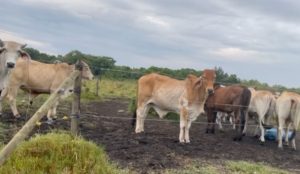
Through Human Intelligence collection and field research, ELI identified dozens of Persons of Interest (POIs) and documented links between Chinese transnational criminal organizations (TCOs), FARC dissident groups, and legally registered livestock companies.
Our teams also obtained a sensitive list of 300 ranches operating inside protected areas under guerrilla control—critical intelligence that reveals the true scale of the illegal cattle trade and its convergence with other criminal markets.
Corruption plays a role in either legalizing the behavior via permitting or title granting, or at a minimum allowing it to continue. Colombian authorities told ELI that they do not have enough resources and they need intelligence to better understand how to tackle this issue.
Narcotrafficking, which according to ELI’s sources remains the biggest source of illegal revenue in the region, provides much of the capital for criminal groups’ expansion into illegal ranching, logging, mining, IUU fishing, and other environmental crimes. The origins of illegally obtained beef, fish, timber and gold are obscured and their profits laundered via mixing within the same category of legally obtained commodities. Drug proceeds are laundered via all these commodities. While deforestation for ranching is happening at a more rapid pace than that for drug cultivation, from a financial standpoint, the relationship is symbiotic, and one helps drive the other.
These findings illustrate a wider pattern of environmental crime convergence: across Latin America, powerful TCOs are infiltrating and controlling illicit economies—illegal mining, logging, ranching, fishing, and wildlife trafficking—that were once seen merely as conservation issues.
What has emerged is a multibillion-dollar underground economy that destroys forests, contaminates rivers, harms Indigenous communities, undermines governance, and fuels both criminal and authoritarian networks.
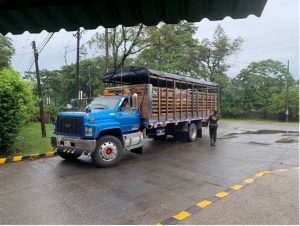
The Amazon conceals a vast web of interconnected criminal enterprises, its reach extending beyond environmental destruction to threaten economic stability and global security.
ELI is now preparing a detailed Confidential Intelligence Brief consolidating all intelligence gathered during more than three years of operations. The report will be shared confidentially with selected key stakeholders, including national government agencies and intergovernmental organizations, to support ongoing enforcement and policy efforts against environmental crime convergence.
The deforestation of the Amazon is not simply a conservation issue. This phenomenon is driven by a complex convergence of criminal activities. These criminal activities include illegal logging, illegal cattle ranching, illicitly harvested timber, drug trafficking, money laundering, wildlife trafficking, incursion into protected areas, mining, and land appropriations. Ultimately, environmental crime and its convergence with other serious crimes underlie and perpetuate the destruction of the Amazon’s biodiversity, ecosystems, and species, as well as the livelihoods of Indigenous Peoples and local communities.
This complex project builds upon ELI’s years of working in the field, especially its operations in Latin America over the past eight years. Our work in Latin America has greatly advanced a deeper understanding of environmental crimes and converging criminal activities in this region. Through these operations, ELI has collected, analyzed, and disseminated large amounts of data and first-hand information related to environmental crimes in the region.
The full public report on Operation ENCANTO will be published in early 2026.
Operation ENCANTO was part of a wider research effort in collaboration with International Union for the Conservation of Nature Netherland (IUCN NL) and Foundation for Conservation and Sustainable Development Colombia (FCDS).


